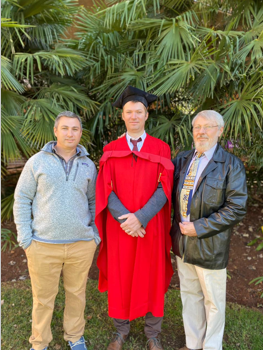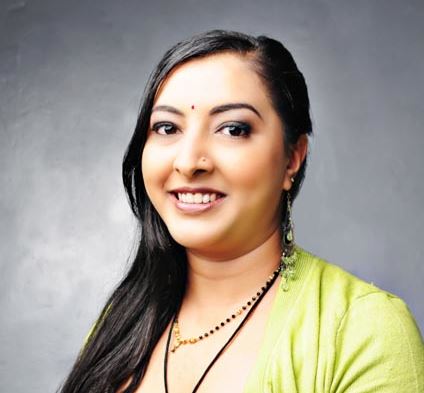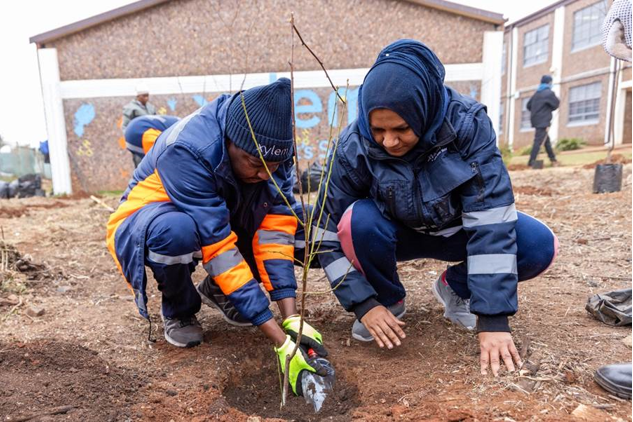Click on the heading above to view the full article. (Download your copy.) Recorder Website: https://volksrust.net/the-recorder/

In this edition / In hierdie uitgawe……
(Click on any of the blue link news headlines below to be taken to the news article of your choice / Kliek op enige van die blou skakel nuusopskrifte hieronder om na die nuusartikel van jou keuse geneem te word)
Do you have any loved one like a relative or friend who has passed away, and you would like to post your funeral notices or obituaries? Contact us. We will do it for you for free and at absolutely no cost to you. Contact Carlos Pereira on his WhatsApp at 067 271 0270 or email us at admin@volksrust.net. Our previous email at recordervolksrust@gmail.com is no longer in use so kindly refrain from emailing us to that email. The only email now in use is: admin@volksrust.net
If any advert(s) have been submitted to us (and paid for) but it has not appeared in this edition of the Recorder, do contact us as soon as possible so that we can either reimburse you or alternatively include it in our next September 1st edition 2023. Our contact details can be found directly right at the top of this page and it appears in our Recorder logo. Thank you.
School News / Skool Nuus
Thabang excels with rugby.
Paulos included in provincial team.
Baie welkom terug aan me. Lucille Heyns.
Nuwe onnie.
Oud-Volkie Lourens Erasmus verwerf doktorsgraad.
Oud-Volkie Rika Rossouw presteer weer eens.
Provinsiale Kleure vir Nathan.
News / Nuus
Don’t Let Funeral Costs Land You In Debt.
How solar installations can add value to residential properties in South Africa.
Nedbank research shows SA’s youth are saving, but they need financial guidance.
This Mandela Month, #Matric4Madiba helps learners to defy the odds.
Moving from Fight Club to Reusable Identity.
Transnet’s board vacancies hold lessons for corporates and SOEs.
Recipe of the Month: Coconut and Berry Porridge.
MPUMALANGA SURPRISE: Loving Wakkerstroom, where the unexpected happens.
Light in the tunnel for the Piet Retief-Volksrust road.
Private company arrests man for setting a truck alight.
Professor Nishani Harinarain: Pioneering Women in Construction.
Expert tips to protect your solar system against winter weather hazards.
What to do if your car catches fire.
Increased money stress severely impacting SA’s home, work life and health.
Off The Grid in South Africa – A practical guide to shedding load-shedding.
Seven sales tips to enhance your business.
Age is Just a Number: South African Entrepreneurs Embrace Youthful Ventures as the Ultimate Learning Playground.
Show up and style up: Papa do my hair.
Celebrating Nelson Mandela Day: Xylem Watermark enhances Soweto’s Mapetla High School.
Inspirational Story for the month: ‘The Burnt Toast’.
Volksrust SAPS/SAPD
MEDIA STATEMENT FROM THE SOUTH AFRICAN POLICE SERVICE (SAPS).
Manhunt for suspects after two killed, another kidnapped in Mpumalanga.
School News / Skool Nuus
Thabang excels with rugby.

Thabang Mphore was named the best full-back in the u/17 Academy team. Congratulations Thabang, Volkies are proud of you!
*****************************
Paulos included in provincial team.

Congratulations to Paulos Gebeyehu who has been selected to represent the Natal JKA karate at the National SA JKA Championships and Africa Cup Tournament to be held in Johannesburg on 28 and 29 July.
*****************************
Baie welkom terug aan me. Lucille Heyns.

Baie welkom terug aan me. Lucille Heyns. Me. Heyns het al meer as 14 jaar onderwyservaring en beskik oor ‘n B Ed graad deur Unisa, ‘n bemarkingsdiploma en ander indiensopleidingskwalifikasies. Sy is ook ‘n oud-Volkie! Haar spesialisvakke is Besigheidstudies, EBW, LO en Skeppende Kunste. Sy gaan Wiskunde Geletterdheid en Besigheidstudies vir graad 10 aanbied en LO vir graad 11.
*****************************
Nuwe onnie.

Hoërskool Volksrust verwelkom me. Alit Filmalter. Me. Filmalter is gebore in Heidelberg Gauteng en behaal die graad B Ed in Wiskunde aan die Noordwes Universiteit. Sy is in haar derde jaar van skoolhou en geniet elke oomblik daarvan. By Volkies is me. Filmalter verantwoordelik vir graad 8 Wiskunde.
*****************************
Oud-Volkie Lourens Erasmus verwerf doktorsgraad.

Baie geluk aan Dr. Lourens Erasmus met hierdie groot prestasie. Erasmus is die seun van Johann en Charlotte Erasmus, gebore op 9 Junie 1985 in Middelburg. Hy matrikuleer aan Hoërskool Volksrust in 2003 en nadat hy ʼn paar jaar in die Verenigde Koninkryk spandeer het, begin hy in 2006 LLB studeer aan die NWU. In 2011 verwerf hy die LLM graad en in 2012 word hy as prokureur in die Hoër Hof toegelaat. Terwyl hy aan sy LLD gewerk het, het hy ook as tydelike lektor en akademiese assistent diens gedoen by die NWU. Sy tesis is getiteld “The implementation and enforcement of the legal environmental health mandate in South Africa”.
Op die foto is Rasmus (sy broer), Lourens en Johann (sy vader).
*****************************
Oud-Volkie Rika Rossouw presteer weer eens.

Op 2 Julie het me. Rossouw deelgeneem aan die SA twee-kamp standaard in Midmar waar sy die eerste plek in haar ouderdom behaal het. Die twee-kamp het bestaan uit 10 km hardloop, 40 km fietsry en weer 5 km hardloop. Verder meer was Rossouw ook algeheel tweede van al die dames. Volgende jaar gaan sy deelneem internasionaal in Australië en ons beste wense vergesel haar.
*****************************
Provinsiale Kleure vir Nathan.

Baie geluk aan Nathan van der Watt. Nathan het Natal Kleure vir JKA karate verwerf en gaan nasionaal deelneem in Johannesburg op 28 en 29 Julie.
*****************************
News / Nuus
Don’t Let Funeral Costs Land You In Debt.

South Africa is the world’s 4th most expensive country for dying, with 13% of the annual average wage used to pay for funeral costs. For many people who do not have funeral cover, burying a loved one is unaffordable, and they are forced to use savings that were intended for education or retirement, while others go into debt to pay for funerals.
But even with funeral cover in place, funerals can end up costing more than expected or what is covered by your funeral plan. Funerals are by nature an opportunity for friends and family to gather to honour the deceased. But in some settings, this could include large communities who attend and need to be catered for, which can add significant costs. “While our funeral plans are designed to enable South Africans to be celebrated with a funeral as unique as them, without a budget and careful planning, costs can escalate and cause extreme financial hardship for those left behind,” says Yaaseen Albertyn, Product Management Head at Metropolitan.
The company’s funeral offering is flexible and affordable and enables the plan owner to customize their plan according to their funeral wishes and what they can afford. Given the evolution of traditional family structures, cover is provided for up to three life partners, children, parents and up to nine extended family members. All funeral plans include a payment protection benefit, the ability to skip premiums in tough financial times, Metropolitan’s CashBack benefit and a repatriation benefit. “Depending on the wishes of the plan holder, and more importantly affordability, add-on benefits can be selected, such as a memorial benefit to pay for a tombstone or a monthly income to cover expenses for a limited period,” says Albertyn.
Understand all possible funeral costs
The starting point is to understand all the possible costs associated with holding a funeral. This includes pre-funeral costs, such as repatriation, livestock, clothes, undertaker costs, coffin and cemetery costs. Funeral costs on the day include the service venue, flowers, catering, refreshment venue, funeral service, programmes, music and chairs, while post-funeral costs can include a cleansing and unveiling ceremony, and a tombstone.
Once you know what kind of funeral you want and the associated costs, you can then select the appropriate cover amount. “Don’t be tempted to choose a cover level you can’t afford. Rather manage your expectations on the kind of funeral you can afford that won’t get your loved ones into debt,” advises Albertyn.
Using funeral cover wisely
When a loved one passes away, it’s up to the family to arrange the funeral in line with the available funds. “Drawing up a budget is critical and getting consensus from family members is important to ensure that costs don’t get out of control,” says Albertyn. He advises focusing on what is important and non-negotiable and saving on other items, such as extravagant flower arrangements and expensive catering. “If you’re expecting a large gathering, you may have to relook the refreshments you provide or call on your close friends and your community for support.”
Why people overspend on funerals
Lack of pre-planning is one of the biggest reasons for overspending when it comes to funeral costs. When a loved one dies, you are not necessarily in the right frame of mind to make smart budget decisions. There is no time to compare prices and the various services available and it’s hard to know what is and isn’t necessary. “When families are grieving, they can be tempted to outsource to service providers who they cannot afford or make hasty spending decisions based on emotion,” cautions Albertyn. He advises getting a trusted friend or family member to help you with getting quotes so you can compare prices before making costly decisions.
While no one likes talking about funerals, they are an important and often expensive part of life. “You can avoid financial hardship for your loved ones and still have the dignified send-off you want by taking out the appropriate level of funeral cover. It’s then up to family members to manage the funeral payout responsibly to avoid overspending,” says Albertyn.
For more information visit www.metropolitan.co.za/collectiveshapers
*****************************
How solar installations can add value to residential properties in South Africa.

As load shedding continues to impact daily life, homeowners are increasingly seeking alternative energy solutions. With the recent announcement of a tax rebate for solar installations, the time is ripe for homeowners to explore the advantages of solar power.
According to Antonie Goosen, principal and founder of Meridian Realty, “South Africa’s electricity crisis has made it crucial for households to consider alternative energy solutions to keep their homes running. Solar power offers a viable and sustainable solution, and with the government’s tax rebate initiative, the financial burden of installation can be alleviated.”
The South African government’s tax rebate for solar installations allows homeowners to claim up to 25% of the cost of solar photovoltaic (PV) panels, with a maximum rebate of R15,000. The rebate applies to new and unused solar PV panels with a minimum capacity of 275 W per panel. This incentive is designed to reduce pressure on the national power grid and promote the adoption of renewable energy sources. Homeowners can take advantage of this opportunity, as the tax benefit will be available for 12 months starting from 1 March 2023.
Solar installations not only offer a relatively quick and silent installation process but also have the potential to lower future energy bills and benefit the environment. However, the upfront costs associated with solar power installations have been a prohibitive factor for many homeowners, even with the current tax incentives in place. Fortunately, various financing options are now available to make solar power more accessible and affordable.
Colin Strumpher, a sales manager at bond originator BetterBonds, highlighted the financial services options available to homeowners at the recent 10th Energy Digicon, an event hosted by Alan Winde, the Premier of the Western Cape. Existing home loans can be increased to cover the cost of installing solar panels, allowing homeowners to spread the investment over a longer period. Additionally, new homeowners can apply for financing from the beginning of the home-buying process. Furthermore, rental options for solar power systems are available through certain financial institutions.
Goosen says, “The worldwide demand for solar power solutions has led to a variety of options becoming available and a significant drop in costs. In South Africa, this increasing demand has resulted in a number of specialist financing options becoming available for homeowners, making solar installations more affordable and accessible than ever before.”
Investing in solar power can have a positive impact on property values. Studies conducted by the South African Photovoltaic Industry Association (SAPVIA) have shown that solar installations can increase the value of a property by around 3 to 4%. I believe that these estimates are still conservative and that the value can be increased by as much as 8%.
According to SAPVIA, the installation of solar panels provides potential buyers with the assurance of reduced energy costs and a more sustainable lifestyle. This appeal is particularly significant in South Africa, where the electricity outages and escalating electricity prices have started to inhibit uninterrupted functioning of households.
Solar panels have proven themselves to have a long lifespan and require little in the way of maintenance, providing homeowners with a reliable and low-maintenance energy solution. Additionally, solar solutions are becoming more versatile, with options available to address small-scale requirements such as outdoor lighting, mid-level solutions like solar geysers to cut the cost of heating water, and major solar solutions that can take a home off the electricity grid entirely.
In addition, the South African government is considering legislation that could allow homeowners to sell their surplus solar power back to the grid, further increasing the financial benefits of solar installations. This potential opportunity opens up the possibility of homeowners not only reducing their electricity bills but also generating additional income through their solar installations.
Solar power solutions are typically scalable, which means homeowners can easily add extra solar panels or batteries as finances become available or household demand increases. This flexibility allows homeowners to tailor their solar installations according to their specific energy needs and financial capabilities.
South Africa’s property market is showing signs of increased buyer interest in homes with solar power solutions and a willingness to pay a slightly higher price than similar homes without a solar solution. This trend follows the patterns seen in international markets, where solar-powered homes command a premium in the property market. By investing in solar power, homeowners not only benefit from reduced energy costs but also enhance the overall value and desirability of their properties.
Looking at alternative power from a global perspective, the World Economic Forum reports that renewable energy sources, including solar power, are expected to account for almost 90% of new electricity generation globally by 2026. As such, solar installations are likely to become an increasingly attractive option for homeowners, not just in South Africa, but worldwide.
Furthermore, solar power is environmentally friendly, enabling homeowners to reduce the carbon footprint of their homes and contribute to global efforts in combating climate change. By lowering the demand for fossil fuels and reducing electricity generation from non-renewable sources, solar installations play a crucial role in creating a more sustainable future.
To maximise the benefits of solar investments, Goosen recommends that those wanting to install solar consider their financing option wisely and the size of the installation to maximize electricity generation and comfort. Goosen says it is imperative to use a reputable provider and to install a hybrid solution that combines solar panels, a smart inverter, and a battery for efficient energy usage and load-shedding resilience. Finally, he says that the panels must be installed in the optimal area to get the most sun, for example a north facing roof.
South Africa, along with the rest of Africa has sunshine all year around, with South Africa above the global solar radiation average. According to the Department of Energy, ‘Most areas in South Africa average more than 2 500 hours of sunshine per year, and average solar-radiation levels range between 4.5 and 6.5kWh/m2 in one day’. Goosen adds, “South Africa has the perfect climate for solar, and, as a country, we need to move away from our coal heavy electricity production, which is clearly obsolete”.
It is clear that investing in solar power can increase the selling potential of homes and provide long-term benefits to homeowners and prospective buyers alike. The tax rebate incentive further enhances the advantages of adopting solar energy. “At Meridian Realty we encourage clients to consider solar power as a valuable addition to their homes. By embracing solar power, homeowners can not only contribute to a sustainable future but also significantly increase the value of their properties. Despite a big initial outlay of capital, homeowners should maximise their solar investment, in order to get the best possible return on their investment, albeit if selling is not an immediate consideration. This, coupled with the comfort of a home that can continue to run normally during loadshedding, is invaluable to homeowners and potential buyers alike,” concludes Goosen.
*****************************
Nedbank research shows SA’s youth are saving, but they need financial guidance.

In today’s world, knowledge is the key to financial success. So, while a recent study by Nedbank revealed that South Africa’s youth are showing a commendable improvement in their commitment to saving, there is a pressing need for improved financial information and transparent guidance to help them achieve the outcomes they desire.
That’s according to Vanesha Palani, Executive of Financial Management at Nedbank who says that the research findings point to the fact that young adults are eager to explore new savings products and methods, but that they are also seeking transparent and unbiased guidance to help them make informed savings and investment decisions.
‘Our research indicates that 68% of young adults are now saving on a monthly basis, with an additional 7% saving weekly,’ Palani says, ‘however a full 78% of survey participants expressed a desire for more comprehensive knowledge on ways to grow their money.’
According to Palani, the guidance specifically mentioned by respondents covers a vast array of requirements, but the highest number of young savers want transparent information on returns and costs, personalised advice and detailed insights into different savings products and their functionalities.
Palani underscores the urgency of meeting these informational needs, in order to not only support young adults on their savings journeys, but also to entrench savings habits in young people in order to improve on the savings culture of previous generations. ‘If our young adults are actively seeking more information and transparency to make the right savings decisions, we have a responsibility to provide that to them,’ she explains, ‘so that our country can finally begin to build the savings culture that has been missing from SA society for so long.’
This is especially true given the research findings that show the vast majority of young adults in South Africa who are saving are doing so in a formalised way, with savings accounts being the preferred choice for 90% of them. That said, there is still a healthy appreciation amongst the youth of the value of informal savings methods, with 89% of respondents making use of some form if informal savings vehicle, ranging from accumulating grocery vouchers or stamps for end-of-year expenses, to participating in stokvels to save towards a specific goal, storing cash at home, or holding money in a transactional bank account.
Palani says that, while many of the young people who participated in the Nedbank survey demonstrate a surprisingly conservative approach to saving and investment, many also display more of a sense of adventure than is often seen in older generations of savers. ‘Around 75% of respondents prefer direct investments over safer options like unit trusts,’ she points out, and other popular investment avenues include cryptocurrencies, assets for resale, rental property, and independent share and forex trading making up the remainder.
However, while the savings focus of the youth is heartening, Palani says that the need for guidance becomes patently obvious when one digs deeper into the reasons most young South Africans give for saving. ‘Short-term savings goals predominate among young adults,’ she says, ‘and there appears to be very little focus on retirement planning or investment, despite increasing life expectancies demanding that young people begin their retirement savings journeys as early in their lives as possible.”
There are also several key barriers to entry identified by many participants in the research, including perceived low interest rates offered by formal savings accounts, insufficient information about available products, and high costs.
The research also reveals that factors like rewards points for saving, personalised saving and investment advice, banking fee discounts, and goal-oriented apps and tools influence the saving behaviours of young people and inform their choice of products and service providers. Unsurprisingly, digital channels are very popular enablers of saving and investment among young adults, with 51% utilising apps and 16% using electronic banking as their primary means of saving.
Against this backdrop, Palani reaffirms Nedbank’s commitment to not only recognising the needs, preferences, and challenges of South Africa’s youth, but also providing them with tailored solutions that prioritise ease of access via digital platforms, cost-effectiveness, and competitive interest rates, as well as appropriate guidance. She cites the range of savings and investment solutions available through Nedbank as proof of this commitment, for example the Nedbank JustInvest offering, with its low minimum deposit requirement of R500, 24 hr access to funds, no monthly fees, and compelling returns upwards of 8.75%.
‘By empowering young adults with accessible savings options, transparent information, and personalised advice, Nedbank is helping to nurture a financially informed SA youth,’ she says, ‘and nurturing the new generation of savers that are equipped to make sound long-term financial decisions that benefit them and the South African economy.
*****************************
This Mandela Month, #Matric4Madiba helps learners to defy the odds.

By Phemelo Segoe
The Department of Basic Education estimates that less than a third of South African adults have their matric. While this is a deeply troubling statistic, it remains just that — a statistic — until we consider the importance of a matric, and what massive implications not having this qualification has on the lives of millions of people.
A matric, sometimes known as a National Senior Certificate (NSC), is an entry-level requirement for almost every college or university application, and for professional positions, too. Even those who do find work without a matric are less likely to be promoted, and entrepreneurs interested in running their own companies often find it difficult to secure venture capital.
This has far-reaching ramifications. It makes intergenerational cycles of poverty harder to break within families, communities, and nations, and slows economic progress at every level. Since poverty has an inverse relationship to education, developing our people means developing our country as a whole.
If you want to defy the odds, beat the statistics and achieve your matric, there is hope. Whether you’re a job seeker or an employee trying to better your chances, or an employer striving to upskill your team members (and add points to your B-BBEE Scorecard in the process), there are several options available to you.
These options pave the way to your journey to matric.
Adult education and training
Adult education and training (AET) is the beginning and one of the best places to start if you’re trying to establish a foundation of lifelong learning and enable access to further education. AET Levels 1 to 3 are designed to prepare learners for the General Education and Training Certificate (GETC), which is registered at NQF Level 1. The GETC then places learners on the track to further learning opportunities. It’s designed to equip you with the essential basics you need to choose a vocational route and seek out occupational-specific qualifications.
Foundational Learning Competence
Once your AET is complete, a Foundational Learning Competence (FLC) qualification provides you with critical skills in communication and mathematical literacy. It’s suitable for any adult who wants to progress with occupational learning between NQF Levels 2 and 4. Ideally, you should hold an AET Level 3 in communication and mathematical literacy before you start the FLC.
Amended Senior Certificate
Of course, the ultimate goal is to secure your matric, since it serves as an entry-level requirement for many colleges, universities, and professional positions. The Amended Senior Certificate (ASC), which is registered at NQF Level 4, is the equivalent of the NSC. To write it, you need to be 21 years old or older with an incomplete senior certificate qualification. Once you have it in hand, your chances of qualifying for tertiary study or finding employment are that much higher.
This Mandela Month, Optimi Workplace is calling on organisations to put their employees back on track academically and professionally by helping them achieve their matric. From AET to FLC and ASC, employees and community members can be registered for any part of their matric journey through Optimi Workplace.
During July, in celebration of Mandela’s legacy, Optimi Workplace is committed to offering free Essential Computer Skills training to every learner registered for a course on the journey to matric. All roads lead to matric this July with #Matric4Madiba.
This media release has been distributed on behalf of Optimi Workplace by Fox Street Communications. For more information, interview requests and images, please contact Lauren Hills on lauren@foxstreetcomms.co.za or +27 83 226 8906.
Phemelo Segoe is an education specialist and Marketing Manager at Optimi Workplace, a division of the Optimi Group, one of South Africa’s leading names in the education and training industry.
*****************************
Moving from Fight Club to Reusable Identity.
Johannesburg, 04 June 2023: Our identities help us participate in modern society. Consider how often we use our identity numbers to access services and imagine how debilitating it is not to have an official ID number. That means no driver’s licence, bank account, phone contract, or even sim card.
The digital era has amplified identity. But it’s also become schizophrenic: we don’t have one login; we have many, and when businesses access our identities, they may get more information than needed. Fractured identities also create security, privacy, and compliance risks.
“Who are you? Can I trust you? Do I want to do business with you?” These questions raised by Daniel Robus, Chief Revenue Officer at identity platform Contactable, highlight the importance of accurate identity verification in digital transactions. People are increasingly realizing the significance of having control over their own identities. However, inadequate identity verification processes create friction between customers and businesses, particularly in challenging economic conditions. To attract prospective customers and facilitate smooth interactions, service providers must ensure quick eligibility checks without unnecessary steps or delays. At the same time, it is crucial to prioritize safe and secure business practices by swiftly identifying and deterring fraudulent actors while allowing legitimate clients to proceed.
Fracturing, friction, and Fight Club
Robus likens the situation to movies like Fight Club and Split, where the main characters’ psyches fracture into multiple personalities.
“When we look at people today, there are numerous reports talking about how many online social media personalities we’re using. That’s not even taking into account online shopping, online banking, online investing, or corporate systems that you have to access. It’s like Fight Club, do we even know that we have these personalities and which of them represent us? And then we wonder why customers are frustrated.”
Juggling identities creates unnecessary friction for customers and the organisations providing services. It also increases security and privacy concerns. There are emerging remedies, such as the adoption of passwordless logins. Yet these solutions only tackle a part of the problem. Ultimately, the best way is to create sovereign reusable identities that only provide specifically what a transaction requires.
“If I apply for a gym membership, I need different information than when I buy a car. There are different things that you need to know, which means different levels of access. For example, at the gym you don’t need to know my birth records. But maybe you do need to know about pre-existing conditions so that you can tailor an exercise plan for me.”
Managing these differences without fracturing identities, creating friction, or creating privacy risks—that’s what a modern reusable identity platform provides.
Automating identification
Robust yet secure reusable digital identities already exist. Recently, the Australian province of New South Wales launched a digital driver’s licence that people can use to verify themselves for other services. And Estonia, the globe’s most digitised nation, has a digital identity card that lets citizens access government services, open new businesses and even vote from anywhere in the world.
How can other countries and organisations take these steps forward? Identities fracture for a reason: managing identities is demanding and technical, and most organisations don’t have the resources to do so properly. Fortunately, they don’t have to: when they integrate identity platforms into their systems, they gain all the benefits of identity management as a service.
“Integrated Identity platforms negotiate on behalf of organisations. It can start with KYC [Know Your Customer] but extend to all types of processes. Do you need biometric photo verification? Are you enrolling someone as an employee or into a secure system? Do you need address verification? Integrated Identity platforms provide a toolbox to enable the business analyst to give customers a reusable identity experience in one place, and the platform ensures that the process only accesses the information it requires while maintaining compliance and accuracy.”
Platforms that protect and manage sovereign reusable identities are game changers. They facilitate or support KYC and single sign-on, passwordless access, privacy controls, and that holy grail of customer service, personalisation—without fracturing identities. And the platform approach centralises identity control as a service that can be aggregated securely across branches and third parties. They remove the friction from identity processes, enabling organisations to do the minimum and continue with business.
“If you’re running a business, pay attention to this,” says Robus. “Whether you’re talking about security, KYC, or just making it easier to transact with your customers, reusable identity is going to become as important as data.”
*****************************
Transnet’s board vacancies hold lessons for corporates and SOEs.

Futuregrowth Asset Management recently raised concerns about the inordinate time it is taking to fill six vacant positions on the Transnet board. These concerns are valid and point to governance issues that should be seriously considered by all boards, says Parmi Natesan, CEO, Institute of Directors in South Africa (IoDSA).
“Futuregrowth’s analysis shows that the failure to fill six vacancies in a 12-person board has made it less able to tackle the serious challenges the company faces—a matter of considerable concern given its pivotal role in our economy,” she points out. “In the best of times, a board needs the right mix of skills to steer the organisation well, but in a tricky economic climate and facing significant challenges, the lack of board skills is existential.”
For a start, Transnet’s sparsely populated board table means that important board committees like the audit committee, social and ethics committee, and risk committee could be missing critical skills. These committees fulfil vital roles in the governance of the organisation, and particularly in relation to its ability to rise to the challenges it faces.
“Organisations and board chairs must pay particular attention to the need for the board to have, in the words of King IV, ‘the appropriate balance of knowledge, skills, experience, diversity and independence for it to discharge its governance role and responsibilities objectively and effectively’ (Principle 7),” Natesan says.
A related issue is the fact that the terms of office of the six remaining non-executive directors will expire in May 2024. While the principle of rotating board members in a staggered fashion to ensure that skills are renewed and diversity improved is a good one, it is clearly counterproductive for so many board members to leave at once.
“We see this kind of mass reshuffling of boards particularly in the public sector. The motivation behind rotation is good, but it needs to be handled intelligently to ensure that invaluable institutional memory is not lost,” she says. “Organisations need to focus on striking a balance between continuity and renewal.”
Another important consideration is succession planning. If board members are going to be rotated regularly, as best practice suggests, then the organisation needs to ensure that individuals with the right skills—including professional directorial skills—are ready in the wings. Succession planning thus needs to proceed in parallel with an ongoing skills audit to ensure that the board understands what skills it needs, and that the individuals nominated for it have them.
“Nobody in South Africa at least now doubts the important role that governance and oversight play in ensuring organisational health and effectiveness,” Natesan sums up. “The corollary—that the board needs to have the right mix of skills in order to fulfil this vital function—is equally true.
*****************************
Recipe of the Month: Coconut and Berry Porridge.
(Recipe Source: Spar.co.za)

*****************************
MPUMALANGA SURPRISE: Loving Wakkerstroom, where the unexpected happens.

Why Wakkerstroom? For the birds? The quest to spot Rudd’s Lark, Botha’s Lark and the Yellow-breasted Pipit is why many a twitcher descends. For the Anglo Boer War history? There’s a cemetery that is a lure for those keen to call back the past. For hiking and mountain biking? Some regular weekend trippers say this is the draw. Why did I make the six-hour-plus road trip from Durban and book a four-night stay at Crabtree Cottage whose owner, it emerged, was returning to Durban after two years in Wakkerstroom? Warm if you guessed culinary! Culinary, plus a bit of a back-story.
It all began with Mark Kotze, who trained “back in the year dot” as a chef at the 60-year-old (next year) Silwood School of Cookery in Cape Town. Since qualifying he has never cooked in any kitchen other than his own, which for the past few years has included the kitchen of his 20-seater “intimate dining” by-appointment-only eatery at DeKotzenhof, the guesthouse with restaurant he and his wife, Karen, have in Wakkerstroom.
I have no reason to doubt there would be pleasure in the eating of his food, given that Kotze cooks for pleasure, loves playing around in the kitchen and has culinary inspiration dating back to when he was growing up in a home with kitchen chefs and the influence of a mother inspired by an aunt who had a culinary school in England.
But not wanting to be the solitary “appointment”, nobody having booked to dine intimately on any of the four nights I had available, my only proof of his prowess is the pudding I got to eat. His coconut burfi, which he developed while playing around with coconut milk, coconut cream, coconut granules, condensed milk, ramekins and slow-cooking in a bain-marie. This he serves for dessert on occasions with his in-house-made limoncello, pictured above with Karen beneath Wakkerstroom’s Big Sky, which will be an abiding memory for me along with the eclectic assortment of food-focused folk I met there. And a sense of so much food for such a small dorpie.
While I didn’t get to try a Mark Kotze menu, which might have included his 12-hour slow-roasted lamb shank or his 500g fillet stack with red wine jus and Parmesan, I can tell you he is very funny in a droll and grumbly kind of way. This I learnt a year before I went to Wakkerstroom. After he messaged asking to meet me during the 2022 Travel Indaba in Durban.
“Why me? To come and meet you?” I ask, genuinely curious, when I get to the small Wakkerstroom stand at the appointed time.
“Because you write about food and Wakkerstroom is the culinary capital of South Africa,” he says. My mouth, I am sure, falls open. Then we both laugh. Pretty uproariously.
But I take his map, stash the name Wakkerstroom in my head. Until finally last month, while planning a solo road trip in my tiny townie car for other reasons, I see I can easily side-track into Wakkerstroom. Visit this culinary capital, which epithet makes me laugh every time I think of it. There, it just happened again.
Nkosi Moyo, manager-chef at the Wakkerstroom Hotel, in the bar that adjoins the trophy-filled dining room, with a fillet straight off the griddle. (Photo: Wanda Hennig)
On my first night in Wakkerstroom I am saved by the hotel. Getting to the dorpie, somewhere in the middle of nowhere between Volksrust and Piet Retief, takes longer than expected on account of the glut of trucks and abnormal loads, especially along the Ladysmith-Newcastle stretch. If you arrive in the early evening on a Tuesday, as I did, anticipate that the hotel will be the only place open to get a bite (peri-peri chicken livers) and beer (two Black Labels) unless you’ve arrived at your self-catering cottage with supplies.
Which would not have been nearly as entertaining as sitting on the veranda of this establishment eavesdropping on pickled locals. A veranda where pride of place is occupied by a large rhino, which is not stuffed but stone, unlike the many trophies in the dining room, augmented by animal skulls in the bar.
A couple of days later I meet charismatic chef-manager for the past 10 years, Nkosi Moyo, who tells me, while he cooks up a rare fillet for a guest, that the hotel – the only place open 24/7 – is more than 100 years old and belongs to a man with hunting concessions who is out of town.
The Village Bakery, the beating heart of Wakkerstroom. New owner Candi Elisabettini (right) and barista Miempie Mostert with some customer favourites. (Photo: Wanda Hennig)
The Village Bakery, next door to the hotel, is the beating heart of Wakkerstroom life in the morning. This being distinct from Jeff Lawrence’s artisanal Country Bread school, where Lawrence teaches bread-making – many courses, including sourdough and health breads and you name it, if it’s bread or hot-cross-buns and croissants, he offers classes. These are held from a stone barn in the garden of the house he and his wife Sue, who does leatherwork, bought in Wakkerstroom 20 years ago as a weekend breakaway from corporate Joburg. They moved permanently to the dorpie when he retired in 2016, at which point he gave himself the gift of a four-day course with master baker Paul Merry at Cann Mills in Dorset. This to tweak what he felt were some gaps in his understanding.
I walk into the Village Bakery after my first sleep in Wakkerstroom hoping to buy a sourdough loaf. But no. “The demand isn’t big enough except at weekends. Saturdays and Sundays we do sourdough,” says Candi Elisabettini, who has only owned the business for a month when we meet.
Elisabettini has changed little so far, she says. Other than adding a refrigerator with Vleishuis meat, this being the butchery she set up late last year with blockman Christo Joubert at the country house her partner, who commutes back and forth from Mozambique, bought for her after Wakkerstroom became a place she chose to settle in rather than to keep coming to and going from.
On a Wednesday morning the café-deli-bakery is doing a lively trade in meat pies and brick-shaped regular loaves, steamy from the oven. The on-high chalked menu board takes me back to some of the larger cafés I frequented in coastal California. The tables are busy, the deli shelves packed with bottled jams. Had I wanted breakfast I would have chosen between the rösti potato, egg and bacon stack or, this being a dorpie, the breakfast vetkoek with egg, bacon and cheese.
Elisabettini’s partner had a mom and brother in Wakkerstroom, which is how she learnt about it. “Wherever I’ve gone or lived, I’ve thought, what’s missing?” Teaching with a home-schooling focus and art, both of which she was doing in Maputo, “I realised were not going to make me a living here”. Her partner’s sister’s husband, the blockman, needed a butchery. Then she heard through the grapevine the bakery had been for sale for 18 months. And everything fell into place.
Red Rooster chef and co-owner Denise Schuil with her artisanal breakfast pizza. Inset: A Durban chicken curry order. (Photos: Wanda Hennig)
“Wakkerstroom is full of old people and their parents.” Tony Schuil, co-owner and co-chef with Denise Schuil at the Red Rooster, the eatery for which restaurateurs and others I meet most unanimously express the love, isn’t the only local to share this quip. (And there is a retirement community as testimony.)
“We fell upon Wakkerstroom by chance,” Denise says. She’s made a thin-crusted, crispy artisanal breakfast pizza topped with cheese, bacon, sausage, tomato “and a gorgeous ooze of baked egg and rocket”, exactly as the menu states, for me to photograph then share with Tony and his friend who arrive with a dog to join their three resident pooches.
The Schuils had been fly fishing in the area. Happened to drive through town. Parked in the tiny block-long main drag. Almost next door to the Village Bakery they saw an eatery for sale. “We went in.” Denise points up a wooden staircase to what looks like a storage area, which in fact has a couple of overflow tables. “I saw a Canada Dry sign. I’m from Canada. French-Canadian.” A sign!
“We were in corporate in Joburg, chasing our tails. This business opportunity fell in our laps.” They were on their way to Durban. “By the time we got there, we’d decided.”
It’s the whole thing that goes with food that appeals, she says. “Long hours at the table. Sociability. Laughter. We entertained a lot at home in Joburg. Twenty people around the table wasn’t a lot.” Her first husband was Greek, which meant many Greek island visits to a mother-in-law who cooked. “And I’m part Irish, though mostly French… It’s all been about cooking and food.”
She is responsible for much of what comes out of the kitchen. The slow-cooked Moroccan lamb tagine, for instance, a favourite with diners for which she makes her own ras el hanout (Moroccan spice blend) to rub on the lamb that is then left overnight in the fridge. Tony, she says, handles the steaks and the hot curries.
Everyone I speak to in all of the eateries does everything from scratch.
“You have to be passionate about food to do this. The hospitality industry is brutal,” says Denise. “There are no stores here if we run out of anything. We don’t close between lunch and dinner.” And they choose to stay open nights till the last people leave. I walk by en route to my digs one of my four nights there after everyone else had closed and see stragglers inside drinking wine, laughing. Then join Denise and Tony by invitation the next night, my last.
Thyme Out chef Craig Hutton and assistant Mthobisi Nkosi with some menu items: prawns, snails and a deconstructed lemon meringue. Inset: Jill Robertson, restaurant manager; succulent pork belly and sublime cheesecake. (Photos: Wanda Hennig)
“If you want to make a small fortune in Wakkerstroom, arrive with a large fortune,” is another quip that is part of the Wakkerstroom mantra. Here from Sean Pyott, who spent a year transforming what had been a hair salon then pizza joint into a fine-dining establishment, thinking ahead to when the insurance and risk industry veteran sells his software company. Meanwhile, relishing his part-time involvement, which includes overseeing the wine list and having a place to enjoy and share.
Pyott bought a home in the dorpie back in 2008. “I was in Joburg, working every weekend, wanting a life. Then one Saturday afternoon while driving with a friend from Piet Retief to Volksrust we passed this way. No traffic light. No fast food outlets. No traffic. I came back the weekend after. Fell in love and bought a place here.”
He helped his parents move to Wakkerstroom, visited often, but continued to work from Joburg. Until, during Covid, finding himself locked up in his flat, he decided to move. “Run my company from here.”
He was by then well ensconced in the community. Already the long-time volunteer financial manager of both the annual Wakkerstroom Music Festival and the Wakkerstroom Natural Heritage Association.
He met the stylish Jill Robertson, his congenial veteran restaurant manager, in 2008. She had been working at establishments in the dorpie and in Joburg before that.
And Craig Hutton, his seasoned chef for the past year who came to help one busy weekend and stayed, is an alum from the heyday of the Christina Martin School of Food and Wine, the late Martin being, back then, the doyenne of culinary training.
Hutton’s menu changes with the seasons and with what’s available. Except for what he cannot take off the menu, like his slow-roasted pork belly with pan juices, honey, palm sugar and soy sauce, succulent and flavourful, served with Lyonnaise potatoes. The snails vol-au-vent with fresh roasted garlic and creamy blue cheese sauce and the tender calamari strips are other favourites. And the New York-style baked lemon cheesecake, which is a dream.
In Wakkerstroom Hutton can indulge his personal passion for sustainable off-the-grid living and his professional passion for modern country food, a no-waste philosophy, experimenting with flavours. And mentoring and training his kitchen team not least around what he sees as dining’s circle of enjoyment, where everything from who seats you to how you’re served makes for the ultimate dining-out experience.
Goathouse waiter Junior Visagie ready to deliver a French toast croissant with banana and rose petal syrup. Inset: Linda Michelmore (front) and Mariki Els with some of their popular Goathouse choices. (Photos: Wanda Hennig)
It’s a treat to walk into an eatery where nobody knows you and the staff, the cooks and the owners welcome you like an old friend. It happens sometimes in cities. More often in country towns. It absolutely happened with Mariki Els and Linda Michelmore, partners in The Goathouse, open for brekker and lunches daily in this dorp where many of the places only open Thursdays to Sundays.
Soul food, slow food, fresh food made with love and “no store-bought anything” is the commitment of the pair who call themselves soulmate friends and the yin and yang girls: “We just fit together” with Els more in the kitchen and Michelmore hanging with the guests.
Els had regularly travelled with her project manager husband for going on 25 years and lived for three years in Madagascar before she decided enough was enough, she wanted to settle. She opened The Goathouse two years ago at Easter.
Michelmore, who had come by chance to Wakkerstroom with her late husband 18 years before “in midwinter when everything was burned and it was freezing”, bought three weeks later and moved there permanently 11 years ago, was running a gift shop next door. “A million people arrived that first day,” says Els. “Linda just came and started helping – and I asked her if she’d be my partner.”
Partners chef-artist Lizzie Lack and Paul Grobler at The Bistro, which before Covid was listed among Eat Out’s Top 500. Insert: Lack’s arroz de mariscos, a Portuguese seafood dish. (Photos: Wanda Hennig)
“This is quite a cosmopolitan dorpie. Scottish, Irish, German…” says chef-artist-activist Lizzie Lack. “But having a restaurant in this town… well, it has to be a lifestyle choice. Where the passion sits. Because it’s like eating soup with a fork. You can stay very busy but you don’t get full. You’re not ever going to get rich.”
Before Covid, The Bistro, which Lack runs with her partner, Paul Grobler, was listed among Eat Out’s Top 500. They were open most days of the week and popular with groups of international birders, who have yet to come back in numbers.
Lack’s artistic passion is restoring church windows. She does glass fusion art work and The Bistro is an eatery cum veritable gallery of fun arty stuff, from a flying dragon puppet ceiling light to confusions of fabulous colour. A pleasure to explore before you even start on the arroz de mariscos, the Portuguese dish with prawns, calamari and mussels in lemon chilli that Lack whips up for our picture. Which then gets shared with customer-friends from Joburg who pull in for dinner en route to their Wakkerstroom weekend retreat, with her and Grobler sitting to eat, to chat, then back and forth to the kitchen as orders for more food, more wine, come.
Lack, in a former lifetime, was a diplomat. She has a master’s degree in political science. Was deployed in Africa and South America “under the old government”.
“As a diplomat you’re always entertaining, so food is a big part,” she says of her transition. When that life ended, she opened a restaurant and guesthouse in Riebeek-Kasteel when the only other place there was the hotel. Once it got busy and discovered, she left.
Found Wakkerstroom 17 years ago when looking for a place within a 300km radius of Pretoria, where her dad was living. “We do a Mediterranean thing here. Tapas. And we’ve more or less turned ourselves into a fish restaurant as nobody else was doing fish. Every week, depending on what we get, we change.”
She also makes a point of using local, buying local, from anyone who makes anything delicious. Like both the pistachio halva and the yogurt she insists I try as dessert before I mend my merry late-night way, well entertained and well fed.
The veggie shop with roses – and that sky! Theressa Glover in her roastery; and big cheese Theuns de Bruin shows off a cheddar and a Romano. (Photos: Wanda Hennig)
Theressa Glover. I’d been looking for her since reading that someone was roasting coffee in Wakkerstroom. Luckily she is open on the Saturday I am leaving, brewing, blending, pouring, explaining, including to some Durban folk, and I buy a bag of the Tanzanian, Burundian, Nicaraguan and Brazilian beans blend she recommends and grinds for my AeroPress.
Twelve years ago Glover and her husband, while on an off-road motorcycle weekend, happened to take a gravel road past a dam, and next thing “as we rounded a corner and came into Wakkerstroom we both just fell in love with the place, as so many have before us and after us.” They came back as often as possible, bought a little container home four years ago and, during Covid, decided to take the plunge and leave Joburg for the quiet country life. He is an engineer for a fire risk assessment company. She does the drafting, admin and reports. Both work from home.
Glover bought the roastery with the Genio small-batch roaster last year, learnt the basics from the previous owner and has taken the coffee journey via lots of researching and experimenting from there. She is about to enter her first national coffee roasting competition.
Theuns de Bruin is stirring a huge pot of something liquid – “making a smoked gouda” – when I find him in the farm store building that is part home industry, part dry wors outlet and bigger-part cheese shop next to the 1880 bioscope that is the dorpie’s little information office.
Everyone loves De Bruin’s Honeymoon Valley-brand cheeses. The Bistro uses his haloumi. Thyme Out, Red Rooster and Mark Kotze his cheddar and Romano. His fresh farm cream and ricotta are legendary. And his goats that graze out back.
Friendly and welcoming, he tells me he was initially taught by a Catholic priest who in turn had learnt from parents who made cheese in the mountains of Italy. Loving what he learnt, De Bruin then went to work at a cheese factory in Montagu, near Ashton. And cheesemaking became his life’s work.
Contrasting Big Sky eateries (from left): Welcome to The Bistro, Thyme Out’s evening skyline and entrance to The Goathouse.
Because so many go to Wakkerstroom for the birds, I go with Kristi Garland of the Wakkerstroom Bird Club to a hide in the wetlands to hear about them. No Rudd’s Lark, no Botha’s Lark and no Yellow-breasted Pipit make an appearance. No problem, as I wouldn’t know one if it dive-bombed me.
I drive past the cemetery on my way out of town. Confess I am entranced by the cloudscapes more than by the history.
By then I’ve bought rose petal jam and rose syrup, made by Mark Kotze from roses grown in his garden, to bring home. I’ve both chewed the cud with the folk I’ve met and chewed on some cool food.
*****************************
Light in the tunnel for the Piet Retief-Volksrust road.

Although a vague light, there is hope. During 2022 the Automobile Association of South Africa identified the R543 between Piet Retief, Wakkerstroom and Volksrust as a road with substantial potholes which needed urgent attention.
The Department of Public Works, Roads and Transport-Mpumalanga Province confirmed this week that operations started to repair the bad patches between Mabola and Wakkerstroom. They also confirmed that a tender process is currently ongoing for the maintenance of the R543.

News Source: https://www.excelsiornews.co.za. This article was used and re-posted in The Recorder with the express written permission of/from Excelsior News.
*****************************
Private company arrests man for setting a truck alight.
A private security company has arrested the man seen on a dashcam video allegedly forcing a truck driver out of his vehicle on the N2 near Ermelo moments before setting it alight and jumping out.
Police spokesperson Brigadier Athlenda Mathe had earlier on Thursday confirmed that the police had arrested two suspects, who are employed as truck drivers, in connection with the torching of 21 trucks on the N1, N2, N3 and R577 roads in Limpopo, Mpumalanga and KwaZulu-Natal this week.
Anti Crime Security Unit (ACSU) investigator Bester Maree told the Mail & Guardian that the company had received intelligence regarding the whereabouts of the man caught on video on Wednesday evening before arresting him and handing him over to the police. He said police had then arrested a further two suspects after getting information from the man’s cell phone.
A video of the suspect arrested by the security company, whose facial features are clearly identifiable in the footage, circulated widely on social media, particularly among trucking WhatsApp groups, with logistics business owners fed up with the crime in the sector determined to bring him to book.
The video shows a truck driver getting out of his vehicle and the suspect jumping into the cab. He is then seen throwing something into the back of the vehicle before he sets it alight and jumps out within seconds of flames engulfing the cab.
Maree said the video is “legitimate” and belongs to one of the security company’s clients. He declined to identify the haulage company.
“We got the information [about the suspect in the video] at around 6pm regarding where he stays and we sent scouts to look for the house. He only arrived at his house at around 12am and we arrested him at around 1.30am,” Maree said.
He said the security company’s investigators arrested the man at a house between the areas of Piet Retief and Wakkerstroom in Mpumalanga and handed him over to the police.
Maree said security officers had also on Thursday apprehended a second suspect for allegedly throwing rocks at a truck a week ago. Both have been charged with malicious damage to property. He said the two suspects were employed in the logistics sector, although the man depicted in the video had lost his job as a truck driver a month ago.
“We arrested two suspects and we gave police information about another two suspects who they have arrested in Ermelo and Bethel,” he said.
Spokesperson Mathe said the police had arrested two truck drivers in connection with the torching of trucks.
“A multidisciplinary team assigned with investigating the attacks and burning of trucks have made their first arrests this morning in Mpumalanga. Two men aged 29 and 27 were arrested at their place of residence,” she said.
Police arrested the first suspect on a farm in Piet Retief with the assistance of a private security firm and the other in Ermelo. Both face charges of malicious damage to property.
National police commissioner General Fannie Masemola said the net was closing in on the perpetrators of the attacks.
“Police are hot on the heels of more suspects which involves the ring leaders of these sporadic incidents of criminality. Either they hand themselves over or we fetch them ourselves,” he said.
Mathe said high density police operations were ongoing, including roadblocks, as police work to trace wanted suspects. Earlier this week, Police Minister Bheki Cele earlier said 12 potential suspects had been identified.
News Source: The Mail & Guardian.
*****************************
Professor Nishani Harinarain: Pioneering Women in Construction.

Professor Nishani Harinarain, an Associate Professor in the Construction Studies Discipline, has emerged as a trailblazer in the field of construction and an inspiring figure for women in science.
With a career spanning over 17 years in academia (she was the first PhD graduate in Construction Management at UKZN) she has made significant contributions to the construction industry and has garnered several accolades for her outstanding work.
“I was drawn to the construction industry because of my fascination with buildings and infrastructure,” she recalls. “I enjoy seeing projects come to life and being involved in the process.”
‘Women add unique skills to the industry’
As a woman entering the construction field, Nishani faced numerous challenges, particularly those related to gender bias and stereotypes.
“I was often the only woman on site or in the boardroom,” she explains. “I faced scepticism about my abilities, and although I did not encounter it, I know that the industry can be harsh and unwelcoming and, in the past, insensitive towards women.”
To overcome these challenges, Nishani emphasizes the importance of persistence and hard work.
“I ensured that I was never excluded and that I was given the opportunities to grow. I think it is important for firms to create a more inclusive and supportive environment to address the unique challenges faced by women. Maybe this can even help attract and retain more women in the construction industry.”
When asked about the unique perspectives and skills that women bring to the field of quantity surveying, she highlights their collaborative nature and communication skills.
“Our ability to foster strong relationships, facilitate teamwork, and effectively communicate with stakeholders can enhance project coordination and client satisfaction. Women also tend to be adept at building and nurturing relationships, which is crucial in quantity surveying. Developing trust and rapport with clients, contractors, and suppliers can lead to long-term partnerships and repeat business, contributing to the success of projects and the reputation of the quantity surveyor. We play an important role in the industry.”
Roleplayers should work together to encourage STEM careers
Offering advice to young women considering a career in construction or quantity surveying, Nishani encourages them to explore their interests and connect with professionals in the field.
“Their experiences and guidance can provide valuable insights and support as you navigate your own career path. Take the time to understand why you are interested in the construction industry or quantity surveying. Explore different aspects of the field to identify what truly resonates with you”
To encourage more young girls to consider STEM careers in construction-related fields, Nishani suggests early exposure to STEM concepts and construction-related activities.
“Girls need to be encouraged to pursue their interests and passions without societal limitations. There needs to be a collaboration between construction companies, industry associations, and professional organizations to promote diversity and inclusivity that specifically target girls and promote their entry into STEM fields within the construction industry.”
She believes that a career in quantity surveying is not only rewarding and fulfilling but also contributes to the industry’s growth and helps shape a more diverse and inclusive future.
Professor Nishani Harinarain is a member of The Association of South African Quantity Surveyors and has been facilitating numerous webinars through the EduTech arm of the ASAQS.
*****************************
Expert tips to protect your solar system against winter weather hazards.

24 July 2023: Severe weather such as sudden cold snaps and the recent unexpected bout of snow in many parts of South Africa have sparked some discussion around whether home solar systems are at risk.
Extreme weather can both permanently damages solar systems and substantially lower power generation capabilities. However, the extent of winter weather damage is determined in part by the quality of the solar installation and the severity of the weather conditions, notes Rein Snoeck Henkemans, Managing Director of Alumo Energy.
“Homeowners who have appointed a trusted solar provider and installer who use quality parts from reputable brands, and have the necessary solar expertise have less to fear during the winter months than someone who unknowingly hired a member of the so-called bakkie brigade to mount their roof solar panels,” he cautions.
“That said, bad weather may still have a substantial impact on your system’s solar production if care is not taken. Panels can be damaged under certain circumstances, which is why it’s important to turn to the professionals for guidance and assistance during these cold winter months,” he says.
Protecting against various winter phenomena
There’s a wide range of winter weather conditions that may hamper or degrade solar production and solar systems in various ways. For example, excessive rainfall can potentially cause water leaks or flooding, which can damage the electrical components of an improperly installed solar system. However, proper waterproofing measures and installation techniques can mitigate this risk, notes Snoeck Henkemans.
Likewise, hailstorms, which South Africa is often prone to, can be particularly damaging to the surface area of solar panels. Large hailstones can cause physical damage to the panels, leading to cracks or shattered glass.
Cold temperatures alone do not typically pose a significant risk to panels. But extremely low temperatures can affect battery performance, reduce overall efficiency of the system, and cause frost buildup on a panels surface, lowering its efficiency.
Finally, snowfall, although rare in sunny South Africa, can occur – as the country learned recently. Snow accumulation on solar panels can greatly reduce their efficiency by obscuring sunlight, and the weight of heavy snow buildup can strain the mounting system or even cause it to collapse. Additionally, the removal or cleaning of snow buildup, if done incorrectly, can damage panels as well.
Five ways to protect your system from damage
Snoeck Henkemans offers five tips to protect a home solar system against damage and deficient production in suboptimal weather:
Regularly clear any snow buildup from your solar panels using a soft-bristle brush, foam squeegee, or plastic snow rake. Be careful not to damage the panels while clearing the snow. Unsuitable tools or coarse material can scratch or crack the surface. Avoid using sharp objects, metal tools, or abrasive materials.
Do not apply excessive pressure on the panels. Gently remove the snow without pressing too hard on the panels and use a sweeping or pushing motion rather than scraping forcefully alternatively pour water on the panels.
Be cognisant of falling hazards. Clearing snow from rooftop panels may require climbing on a ladder or accessing the roof in another manner and work may be conducted at a sloped angle. Take appropriate safety precautions to prevent falls or accidents.
Remember that a solar system is still an electrical system, and there might be some concern for electrical injury with improperly installed systems. Before attempting to clear the snow, turn off the system.
Finally, if possible, it is best to contact a professional installer and request that they send an expert to clean the panels and conduct general system maintenance.
“At Alumo, for example, regular maintenance forms part of the majority of our packages. We also have experienced cleaners who can be hired at any time to ensure that panels are kept in tip-top condition. This not only ensures that the work is done safely and correctly, but maintains the integrity of your system and allows for defect detection,” he explains.
Experienced installers will also ensure that the electrical connections and wiring are correctly installed to minimise energy losses. A high-quality installation will help generate the maximum amount of electricity, achieve a better return on investment in the long run, and ensure the system can stand the tests of time and mother nature.
“It’s also important to note that professional solar installers will never place their reputation at risk by cutting corners throughout installation and maintenance. This means that your solar system will simply have a better chance of weathering the storm than systems installed by someone less qualified – which is why it’s important not to use fly-by-night companies who may have disappeared when you require post-installation maintenance and assistance,” he concludes.
*****************************
What to do if your car catches fire.

Collisions and mechanical failures are usually the reasons behind car fires. They don’t happen frequently, but when they do, they’re a potentially deadly emergency.
“If you smell smoke or see fire coming from your car while driving, knowing what to do could save lives,” Barend Smit, Marketing Director of MotorHappy, a supplier of motor management solutions. “Vehicle fires can happen in the engine compartment, near the dashboard or even inside the car.”
If your car is on fire, take these five action steps:
1.Stay calm and move your car to safety (if possible)
First and foremost, don’t panic. Easier said than done, but keeping a clear head is crucial in emergencies. If the car catches fire while you’re driving, turn on emergency indicators, and move to the emergency lane or the side of the road.
2.Turn off the engine
Once you have safely stopped, unlock all windows and doors before turning off the ignition.
3.Evacuate the vehicle and move away
Get everyone out of the car immediately. If any passengers are stuck, help them get out. Take the keys with you.
Since the car contains fuel and other flammable liquids, it’s natural that the fire will become intense. So, to safeguard yourself, move far away from the vehicle, at least 30 metres.
4.Call for help
Call 10117 or 112. Even if the fire seems small, it’s best to let the professionals handle it.
5.Don’t attempt to extinguish the fire yourself
Unless the fire is small and you have a fire extinguisher handy, don’t attempt to put out the fire yourself. Car fires can escalate quickly and can be extremely dangerous due to the presence of flammable liquids.
Also, don’t go near a burning car to collect personal belongings. Your personal safety is more important than any material possessions.
Once the fire is out and everyone is safe, the admin begins. “Contact your insurance company to report the incident. They will guide you through the process of filing a claim,” advises Smit. “If you have a comprehensive insurance plan, it will likely cover the car fire damages.
“Even if it was a small fire, don’t risk driving your car once the fire is out. There are chances it may have damaged some unknown components that could cause trouble during the drive. Arrange for the vehicle to be towed to the nearest repair shop.”
Car fires may be less common compared to other car issues, but they can be a serious hazard when they do occur. These fires are sparked due to multiple reasons:
#1 Mechanical or electrical issues
These are among the most common causes of car fires. Faulty wiring, malfunctioning electrical systems, or defective components can all lead to a fire. For instance, a short circuit in the wiring can generate a spark that can ignite flammable materials in the car. Similarly, a faulty battery can overheat and cause a fire.
#2 Overheating engine
When the engine overheats, it can cause the coolant and oil to heat up as well. If these fluids leak, they can ignite if they come into contact with hot engine parts. Overheating is a symptom of multiple underlying issues, including a malfunctioning radiator, a broken water pump, or a leak in the cooling system.
#3 Fuel system leaks
If there’s a leak in the fuel system, gasoline or diesel can escape and come into contact with hot surfaces or electrical sparks, leading to a fire. This can be particularly dangerous because fuel fires can be very difficult to extinguish.
4 Car accidents:
Collision during car accidents can also lead to fires, especially when the fuel system is damaged in the crash. The impact can cause fuel to leak out, and if it causes a spark, it can ignite. In addition, the heat from the crash can cause the battery to short circuit, leading to a fire.
“Regular maintenance is the key to preventing most of these issues. Ensure your car is serviced regularly by a professional who can spot and fix potential problems before they lead to a fire,” says Smit. “A vehicle warranty will usually cover your car against mechanical failures and other operational related problems. A car warranty helps you avoid those nasty ‘failure’ surprises that often translate into huge sums of that you didn’t budget for. With these costs covered through a warranty plan, you can keep your car engine and electrics in good working order and lower the risk of fire.”
Pay attention to your car. If you notice any leaks, strange smells, or rapid changes in fuel or fluid levels, get the car checked immediately.
*****************************
Increased money stress severely impacting SA’s home, work life and health.

Three out of four South Africans feel money-stress, more than last year, with particularly women admitting to the effects of financial stress at home and work and on their health. Lower-income earners are the most stressed, while those who earn more have high levels of unsustainable debt.
These are some of the findings from DebtBusters’ second annual Money Stress Tracker, one of the largest surveys about how financial stress affects other aspects of South African’s lives. There were over 35 000 respondents to the online 2023 survey, conducted among a representative sample of South African consumers who are currently not in debt counselling.
Of the 78% of respondents who said they feel money-stress (up from 70% in 2022), 94% said it was impacting their home life, 78% their work life and 77% believed it was affecting their health – a clear indication that money stress results in other types of stress.
Short-term concerns continue to be the main reason for this stress. Half the respondents said running out of money before the month-end was their main worry. As one put it: “There’s more month than money.”
62% of middle class have unsustainable debt levels
Since 2022 there has been a 22% increase in people who are anxious about being able to make their monthly debt repayments. Overall, 70% of respondents spent more than 30% of after-tax income on debt repayment, but the survey found that those taking home more than R20 000 per month and over had the most debt repayment pressure. Sixty-two percent of the respondents taking home more than R20 000 had unsustainable debt levels. This income band is the backbone of South Africa’s middle-class population.
“We advise consumers not to use more than 30% of their take-home pay on debt repayments. Sixty-two percent of respondents in the two highest income bands we surveyed are spending between 40% or more of their income to service debt. This is simply too much, especially in a high-interest, high-inflation environment,” says Benay Sager, head of DebtBusters.
This year, interest rate increases featured for the first time as one the main contributors to money stress. The other top reasons were unexpected expenses, inflation and living costs, the impact of loadshedding, school fees and retirement.
While all respondents said the biggest money stress factor was running out of money before the end of the month, the next concern for people who were 55 or older was having enough to retire. People between the ages of 25 and 44 were more worried about paying off debt.
In terms of income bands, those earning less than R5 000 a month were most stressed about paying debts and school fees. Those earning R35 000 or more, were the most concerned about interest rate increases.
“This indicates that the highest earners feel the impact of rising interest rates on their financial situation,” explains Sager.
Four out of five women suffer financial stress
Compared to 2022 both women and men are 10% – 15% more stressed about their finances, work life, home life and health. Four out of five female respondents said they suffered financial stress.
“When finance goes out the front door, then love goes out the back door,” said one woman.
Psychotherapist and Transactional Analyst, Diane Salters, explains that there may be two reasons for a higher proportion of women than men reporting high stress levels.
“Firstly, women are often carrying more of the burden of family care and responsibility than men. Secondly, women are more likely to admit to feeling stressed than men and reach out for help. Social conditioning often stops men from admitting they need help. Worldwide, women are more likely to use health services and social programmes. This is good because it means that women are more likely to get and use any help available.”
The survey also showed that people who are younger and with lower incomes feel the most stressed and anxious about money, although stress levels in respondents aged between 45 – 54 showed a 23% increase compared to 2022.
To deal with money stress all age groups said they were cutting back on spending, a strategy that on average 44% of respondents have adopted. This year 38% said they were looking for a better job or higher pay, up nearly 50% on last year.
Inaction, embarrassment, lack of trust inhibits positive action
Younger consumers and those in the lower-income bands are more likely to be looking for a better-paying job. Younger consumers are also 1.5 times more likely to set a budget and stick to it.
When asked why they haven’t acted to relieve money stress, the majority of under 35s said they feel stuck or embarrassed. Those aged 45 and up say they don’t know who to trust or want more time to think. The survey found that less than 15% of people with unsustainable monthly debt repayments take any positive action.
“The tragedy here is the significant number of people who could benefit from debt counselling and other forms of debt management that are readily available and proven to work, but who don’t seek help because they’re frozen in indecision, embarrassed or don’t know who to trust,” says Sager.
*****************************
Off The Grid in South Africa – A practical guide to shedding load-shedding.

“Off the Grid in South Africa” is a practical podcast guide for those looking to avoid load shedding and become energy self-sufficient. The podcast will share tips, tricks and insights on how to generate, store and use energy in an independent and sustainable way. From solar power and wind turbines to battery storage and backup generators, we’ll cover all the options available for powering your home or business off the grid. We’ll also talk to experts, suppliers, and homeowners who have already made the transition to energy self-sufficiency. Join us and take the first step towards energy independence.
Visit the link online at:
https://podcasts.apple.com/za/podcast/off-the-grid-in-south-africa-a-practical-guide/id1667494259 to listen online to this series of podcasts.
*****************************
Seven sales tips to enhance your business.

By Roy Barford, head of business development at Flow Communications.
- Put relationships before everything else
The lifetime value of each customer/potential customer you have is massive, when you consider what a multi-year relationship could bring in terms of revenue and referrals. This is, however, dependent on establishing and maintaining relationships, which are based on trust, as well as providing consistent value.
When you sell someone something that ends up not being of value to them, the chances of repeat business and referrals diminish substantially, if not entirely. So always remember the potential value of the long-term relationship.
- The delivery is far more important than the promise
If your product or service does not live up to the expectations created in the sales process, you have done long-term damage to your reputation.
Manage the expectations of your prospective client carefully before concluding a sale, as these expectations have a huge bearing on customer satisfaction.
It is also important not to compromise on price if this may have a negative effect on delivery.
- Know your customer’s challenges before making your pitch
Asking questions not only gives you insights into the needs of your customers, but also encourages them to reflect on their situation.
An understanding of your customer’s challenges enables you to tailor your value proposition accordingly, and is especially beneficial if there are multiple products or services that you can offer. The best salespeople are excellent listeners.
- Existing customers are your best salespeople
If your existing customers are happy with your product or service, they will recommend you to their friends, family and colleagues. With this in mind, make sure your customers are happy with your product or service, and that you are getting feedback from them.
Telling a potential client, “We believe our services could save you money” will simply never be as convincing as being able to say, “80% of customers surveyed found that our services saved them money.”
Think carefully about how you can repurpose positive feedback and reviews from existing customers, and remember that satisfied customers will always be your best salespeople.
- Discuss budgets verbally before sending quotes/proposals
Dan Lok, an international sales coach with more than four million YouTube subscribers, does not believe in sending written proposals before price has been discussed. He says, “If you cannot close them on the phone, what makes you think a few pieces of paper could close them?”
Wherever possible, Lok will give his price verbally over the phone and then immediately ask, “How do you feel about that?” This gives the potential client no option but to express an opinion, indicate their level of commitment, or state their objections.
From here, his preferred approach is to send a written “agreement” that includes the price, as well as the terms of his service.
If you simply send through an email quotation you lose the opportunity to properly convey your value offering, and you risk losing the opportunity to address objections that the prospective customer may have.
- When in doubt, ask this question …
“What would it take for us to do business today?”
This question gives the prospective customer the opportunity to present their ideal scenario, and prompts them to highlight what is most important to them (i.e. price, payment terms, quantities, guarantees, etc.).
The answer to this question often reveals obstacles to closing the sale, which could include:
You are not speaking to the decision-maker
The prospective customer is locked into an existing contract that they would need to exit
The prospective customer’s expectations or requirements do not align with your offering
Whatever the case, this direct question is a great way to cut to the chase. You don’t have to agree to the prospective customer’s scenario, but at least you’ve outlined the points for discussion.
- Be resilient, be inquisitive and be adaptable
Rejections happen, but for every rejection you get there are many more opportunities ahead, if you keep your mindset and your energy right.
Wherever possible, find out why you were not successful with a sale, as the feedback may just give you an advantageous insight towards adapting your approach. As the saying goes, there’s winning and there’s learning.
*****************************
Age is Just a Number: South African Entrepreneurs Embrace Youthful Ventures as the Ultimate Learning Playground.
By Atlehang Ramathesele
As youth unemployment continues to challenge South Africa, we highlight two youth-owned businesses contributing to economic growth.
It has been well-publicised that South Africa’s youth are the most vulnerable in the job market. In 2022, Stats SA recorded youth unemployment at 66,5%. The scarcity of employment opportunities and critical skills continues to be a pressing issue for South Africa’s youth in 2023. According to data from Stat SA’s Quarterly Labour Force Survey, youth unemployment has risen by 1,1% this year, resulting in the loss of jobs for nearly 250 000 young individuals in the first three months of this year.
In some cases, youth have become disillusioned or feel like the pursuit of work is fruitless, while those who are actively searching for jobs are still battling to be placed in the labour market. One of the most effective approaches to tackling this issue is encouraging more youth to start their own businesses, as entrepreneurship offers as a powerful solution for creating jobs and economic revitalisation. Additionally, it fosters innovation, healthy competition, skills development and financial independence. Two notable examples of small youth-owned businesses Bophele & Ditiro Trading and Izinga NP Holdings, are successfully exemplifying these principles with their respective sectors.
Facilities Management business Bophele & Ditiro Trading was started by Naledi Kgoadi (32) in 2013 in Mamelodi West, Pretoria: “Born in 2012, the idea was prompted by the need to solve a problem of the dilapidation of properties while creating employment,” says Kgoadi . The business specialises in maintenance services, “Our services are landscaping maintenance and construction, domestic and hygiene cleaning, building maintenance and construction, electrical services, mechanical services and maintenance reporting,” he explains.

Based in Bushbuckridge, Mpumalanga, Izinga NP Holdings was founded by Philson Nonyane (33) and specialises in manufacturing and supply of wet cast pavers and wall cladding. They also do wall and floor paving for residents and commercial clients. “We also offer installation of the product we manufacture and are currently working on making our brick manufacturing process as eco-friendly as possible,” says Nonyane.

Both businesses are creating enabling environments to thrive and ultimately making a meaningful contribution to the economy.
Building Businesses
Nonyana, grew up in an entrepreneurial family and was well-poised to go into business. “I grew up in a family of entrepreneurs; my dad sold ice cream for some time then became a subsistence farmer. My aunt owned a tuckshop, while My surroundings inspired all the interest in business my uncle was a tavern owner and my grandmother used to sell at pension pay points. My surroundings inspired all the interest in business,” he says.
He registered the business in 2015 and began operating in 2017 and sold his first product in the same year. The avid entrepreneur credits learning on his feet as one of the peaks in the journey. “It’s starting, failing and learning, then moving forward stronger and correctly,” he says. He has since enjoyed a few highlights including growing his turnover to R400 000.
Meanwhile, Kgoadi’s business journey has also had many triumphs. Bophelo and Ditiro Trading operates on a client-centric ‘service as a product model’ but also works with a subscription model. “The different models are applied in different market segments, and both of them are successful because the work goes hand in hand,” he explains. The company boasts 11 staff and employs contractors on a part-time basis when a project requires it. Part of their ethos is upskilling their staff, and their ultimate vision is for all their semi-skilled staff to be fully skilled.
Growing the business has come with many proud moments including procuring and building their own offices and landing a long-term contract with the University of South Africa.
While they are enjoying the success of their businesses, it has not been without its challenges. Kgoadi concedes that finding the right and competent personal has been an uphill battle- making it harder to establish a good reputation for the company and penetrate the market with more vigour. It continues to be a work in progress, but the upskilling of existing staff remains a highlight.
Nonyana has also experienced some obstacles in his business-building journey, some of which include mastering cash flow, people management and finding customers. “We overcome these mistakes when we learn, learn, apply new strategies- and move forward. Essentially, it is about being resilient,” he says.
Both of these young entrepreneurs have large ambitions for the growth and elevation of their businesses. Kgoadi has global plans for Bophele and Ditiro Trading’s future. “We hope to make Bophele and Ditiro Trading a preferred service provider that delivers its mission of creating and maintaining living, learning and working environments in South Africa and Africa as whole at first- with a view of the world in front of us,” he says. Nonyana’s ultimate dream is for Izinga NP Holdings to be listed on the JSE, but he is currently focused on expansion. “Now I’m much more interested in building it enough to be worthy of an acquisition,” he says.
Future forward
Kgoadi believes that youth-owned businesses are vital to the economy. “It is important for the development and advancement of the country on all levels because we are the future and we have a vision of tomorrow, but this wouldn’t be possible without our parents’ guidance, support and encouragement,” he says. Nonyana highlights that the other perk of starting a business when you’re young is the fertile learning ground. “You have a better chance of learning fast and failing forward,” he says.
*****************************
Show up and style up: Papa do my hair.

“I trust daddy, but not when it comes to hair. He has no idea how hair works,” says Maisha Mashua matter-of-factly. “We’ll aim to change that,” counters Mahlatse Mashua, the dad in question.
JULY 2023 — A hair salon is usually off-limits to men. And when it comes to hair day in most homes, fathers typically get the day off to hang out with the gents or watch their favourite sports teams compete. A few dads have decided it’s time to break that stereotype and show up for their girls – and learn how to style up.
At the helm of this is Mahlatse Mashua, dad to three girls and Heartlines Fathers Matter Ambassador. The idea stemmed from an occasion when Mashua’s wife was away while he remained at home to care for his daughters. One morning his 9-year-old daughter came to him and said, “Daddy, please do my hair” and he realised he didn’t have a clue what to do. From there came the idea for Papa do my hair.
“Sometimes as fathers we tend to be encouraged to do the bare minimum. That’s the old story, though,” says Mashua. “The new story would be that we consider fathering a much bigger category, not just ‘I’m the helper’. It opens up amazing opportunities to play an important role in your baby’s life.”
Mashua and a few friends recently set up a salon-for-the-day at his home in Vredehoek, Cape Town. They’ve invited a professional stylist to teach them some essential hair basics, such as knowing the difference between braids, an upstyle, an afro and twists. And also how to wash and care for their daughter’s hair.
The issue of hair among girls often represents and relates to other issues: identity, their concept of beauty, bullying, stereotypes, values, role models and self-esteem.
This ‘Papa do my hair’ initiative is a fun and entertaining way to engage dads in conversations about why fathers matter in their children’s lives, even in areas that are traditionally “mom roles”. And at the same time, through learning more about their child’s hair, dads will learn a valuable skill.
“You are not just helping; this is what you do. This is your responsibility. It’s a manly thing,” adds Mashua.
The topic of fatherhood is an emotive one for many South Africans. Studies show that there are numerous benefits – for children, mothers and fathers themselves – when fathers are positively involved in the life of a child. Positive father involvement has also proven to cause a decline in gender-based violence, substance abuse, violence and a number of health and psychological risks posed to children. While the narrative is already shifting, much remains to be done.
Heartlines wants to inspire and encourage men – and society at large – to consider just how important it is for fathers to be a positive influence in children’s lives. Through their 6 Fathers Matter Films, supporting resources and the broader campaign, they aim to remind us of this.
If this inspired you, here are some thoughts to get you started:
- Be deliberate. Affirm your daughter and embrace the beauty and complexity of all that she is.
- Be practical. Look for opportunities to demonstrate love and set a positive example of empathy and involvement.
- Be willing to learn. Get out of your comfort zone and master new skills. Don’t let preconceived ideas about men’s traditional roles stop you from being creative in exploring ways to build deeper connections.
- Be in community. Share your experience with other fathers so that you can encourage, support and challenge one another.
Watch Papa do my hair film here.
Anyone who would like to be involved in reshaping the narrative about South African fathers can visit the Fathers Matter website for more information: www.fathersmatter.org.za.
NOTES FOR EDITORS:
About Heartlines
Heartlines is a social and behaviour change organisation that encourages people to live out positive values. Heartlines does this through its projects, which include producing films and multimedia resources that aim to spark conversations around values, and equip people to live out these values. Heartlines further facilitates values-based training, workshops and motivational talks for companies, organisations and groups.
About Fathers Matter
Fathers Matter is a Heartlines initiative to promote the positive and active presence of fathers in children’s lives. At the centre of the project are the Heartlines Fathers Matter Films – six anthology films set in various contexts around South Africa. Each short film is a compelling drama that explores the complexities of fatherhood in South Africa today, where most children grow up in homes without their biological fathers.
*****************************

Xylem Africa and its Watermark volunteers celebrate 18 July by planting fruit trees and renovating the high school’s science labs.
Johannesburg, South Africa 27 July 23: Celebrating Nelson Mandela Day, Xylem Africa and its CSI programme, Watermark, planted 67 fruit trees, refurbished two science labs, donated lab equipment, did water experiments and made vital repairs to Mapetla High School in Soweto, Johannesburg.
Former President and father of the Rainbow Nation, Nelson Mandela, often emphasised the energy of young people and the importance of supporting their ambitions. He once said, “To the youth of today, I also have a wish to make: be the scriptwriters of your destiny and feature yourselves as stars that showed the way towards a brighter future.”
To celebrate Madiba’s birthday on 18 July, we are encouraged to do good for others and pay it forward towards a brighter future.
Helping keep this promise, Xylem Africa and its Watermark volunteers gathered at the Mapetla High School in Soweto’s Mapetla extension in Johannesburg. Active since 1996, the high school and its 41 teachers provide education and other activities to nearly a thousand pupils. Every day, it lives the school slogan: Arise & Shine.
The event marked phase two at the high school, building on previous work by Watermark that established irrigation and a food garden. Xylem’s volunteers gathered at the school to accomplish several big tasks. They planted 67 fruit trees to enhance the school environment, promote sustainable agriculture, and provide nutritious food for students. The teams additionally painted two of the school’s science labs, creating vibrant, conducive learning environments to stimulate interest and performance in science. They also donated lab equipment to help the students further their knowledge.
Watermark’s volunteers, including skilled water technology professionals at Xylem, fixed the labs’ plumbing to create clean and functional facilities for safe and hygienic learning.
“For every Watermark activation we want to add another layer on how we help communities to think about water. By introducing the concept of water at an early age, we make sure there is an emotive connection between the students and water itself, and have a passion about water. They can gain a more holistic way to help conserve and appreciate water,” says Chetan Mistry, Xylem Africa’s Strategy and Marketing Manager.
Young people and water have a lot in common. They are both crucial for creating a better and more prosperous nation. They are South Africa’s most valuable resources. But they both face uncertain futures, and they need our help.
Watermark exists for this purpose. An extension of Xylem’s focus on sustainable development, Watermark is a volunteer programme that participates in better events and activations. Past Watermark projects have helped improve schools and communities across South Africa, the African continent, and the globe. Its volunteers have helped build community gardens and water systems, repair and upgrade schools, distribute clean water and sanitation facilities, and rebuild homes after natural disasters such as the devastating floods in Kwazulu-Natal.
Our work at Mapetla High School is one more stepping stone towards a future where everyone can enjoy opportunity, prosperity, and the security of safe water. Nelson Mandela Day reminds us how we can make a difference and don’t need to wait for Madiba’s birthday. Every day, we can solve water together.
“It is so easy to break down and destroy. The heroes are those who make peace and build.” — Nelson Mandela.
*****************************
Inspirational Story for the month: ‘The Burnt Toast’.

One evening my mother made dinner after a hard day’s work. She put a plate of eggs, salad, and burnt toast in front of my father. I immediately noticed, the burnt toast and, I was waiting to see if he was going to complain about it, but my father started to eat them, smiling and asked me how I spent my day at school. My mom apologized to my dad for the burnt toast. I will never forget his response to her: “Honey, I love burnt toast!”
Later when I went to bed and my dad came over to kiss me goodnight, I asked him if he really liked the burnt toast. He hugged me and said, “Your mother has had a difficult day and she is really tired. She went out of her way to prepare this meal for us, why blame her and hurt her. Burnt toast never hurt anyone; but words can be very painful! “
We have to know how to appreciate what others do for us, even if it’s not perfect, because it’s the intention to do well that counts, and no one is perfect.
Volksrust SAPS/SAPD
MEDIA STATEMENT FROM THE SOUTH AFRICAN POLICE SERVICE (SAPS)
To: ALL MEDIA
PROCESS TO TRACE VICTIMS ALLEGEDLY ASSAULTED BY SAPS MEMBERS UNDERWAY
PRETORIA, 03 JULY 2023: The process to trace the victims who are seen to be allegedly assaulted by South African Police Service (SAPS) members is underway. After being made aware of the incident captured on a video clip that is currently doing the rounds on various media platforms, the SAPS management has began the process to trace the victims to obtain statements from them while an internal departmental investigation is underway.
A preliminary report indicates that the vehicles seen in the video belong to the SAPS and the men seen in the video are SAPS members.
While the internal departmental investigation into the conduct of the members is underway, the SAPS distances itself from the conduct and behaviour depicted in the video which do not align with the values and code of conduct of the SAPS, which outlines the values and principles that all SAPS members are expected to uphold, including integrity, professionalism, accountability, and respect for human rights.
The National Commissioner of the SAPS, General Fannie Masemola has condemned the behaviour of these members.
“Members of the SAPS are meant to uphold and protect the fundamental rights of every person and exercise the powers conferred upon them in a responsible and controlled manner. Such action cannot be condoned regardless of the circumstance,” said Gen Fannie Masemola.
The victims are encouraged to contact Brigadier Athlenda Mathe on 0820408808 for investigation purposes.
Media enquiries:
Brigadier Athlenda Mathe
*****************************
Manhunt for suspects after two killed, another kidnapped in Mpumalanga.
Police in Bushbuckridge, Mpumalanga, are hunting for those who shot two people at a liquor outlet in Dwarsloop on Thursday night and hijacked another man’s car.
Mpumalanga police commissioner Lt-Gen Semakaleng Daphney Manamela vowed the police will work tirelessly to find those responsible for the “horrific” crime.
According to police, an approximately 40-year-old victim bought goods from the liquor store, then joined his friends outside. Armed men then emerged and shot him multiple times.
Police spokesperson Brig Selvy Mohlala said the victim was declared dead on the scene, while the lifeless body of the other victim, believed to be about 35, was found a stone’s throw away with a bullet wound in the back.
“It is also alleged that after the random shooting, another victim who was seated in his Toyota Hilux was … hijacked by the suspects. He was allegedly dropped off along the way,” Mohlala said.
Police have urged anyone with information to contact Lt-Col Eurance Sibuyi on 076-923-4047 or call Crime Stop on 08600-10111.
“Alternatively community members can send information via MySAPS app. All information will be treated as confidential and callers can remain anonymous,” Mohlala said.
*****************************
